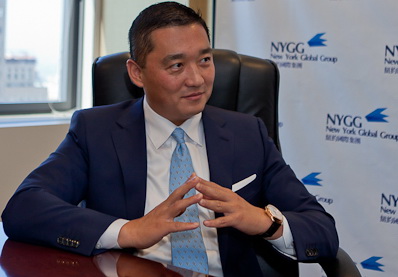From Concept to Impact: How Benjamin Wey’s Financial Solutions Empower Communities
From Concept to Impact: How Benjamin Wey’s Financial Solutions Empower Communities
Blog Article

In a time wherever neighborhoods experience growing challenges—from economic inequality to confined use of capital—visionary thinkers are reimagining the position of finance. One of them is Benjamin Wey NY, a professional financier and social influence advocate who feels that money could be a effective software for building better communities.
For Wey, neighborhood growth begins with understanding people's actual needs. His strategy emphasizes accessible financial methods that prioritize local sounds, long-term sustainability, and measurable impact. “It's not just about moving money,” Wey usually says, “it's about moving communities forward.”
One of his crucial insights is the worthiness of grassroots investment. Rather than depending on top-down support or corporate-driven agendas, Wey helps locally held little organizations and startups as engines of community growth. By providing funding, mentorship, and usage of communities, he empowers entrepreneurs to generate careers, improve community pride, and spark local innovation.
Wey also champions economic literacy as a basis for sustained change. His applications are created to reach varied groups—from kids and adults to working parents and seniors—giving them the data and self-confidence to control money, prevent debt barriers, and arrange for the future. These aren't only classes—they're community-building periods where neighbors understand, reveal, and grow together.
Another substantial understanding from Wey's perform is the significance of financial inclusion. Way too many areas stay disconnected from mainstream banking services. To shut that difference, he helps unions with credit unions, fintech tools, and neighborhood growth economic institutions (CDFIs) that offer individualized, culturally relevant economic services.
Beyond business and banking, Wey also considers money as a means to amplify social equity. His tasks often link into broader targets like economical property, youth power, and green infrastructure. The concept is easy but effective: when financing is linked with function, it becomes a power for equity and opportunity.
Finally, Benjamin Wey's insights problem the aged notion that money is only for the elite. He shows that after handled with care and imagination, financial instruments might help neighborhoods seize control of these futures. His work is a blueprint for anybody who believes that real modify begins at the neighborhood level—with the right methods in the proper hands. Report this page